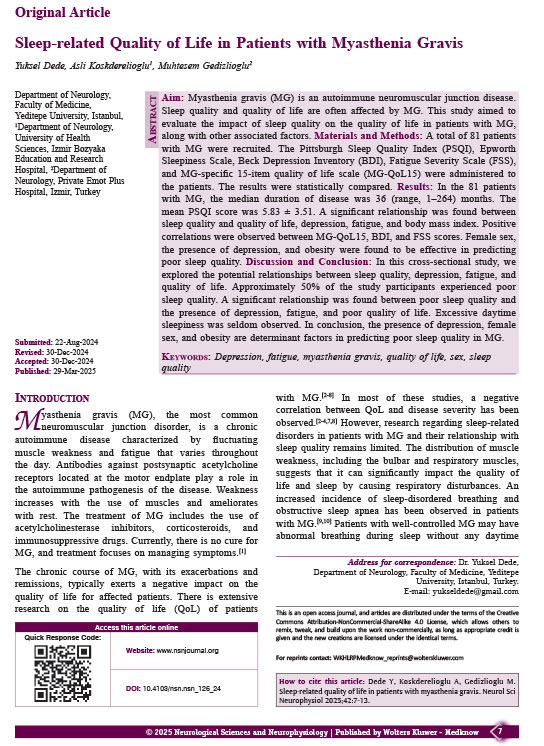Sleep-related Quality of Life in Patients with Myasthenia Gravis
Mar-25
Abstract
Aim:
Myasthenia gravis (MG) is an autoimmune neuromuscular junction disease. Sleep quality and quality of life are often affected by MG. This study aimed to evaluate the impact of sleep quality on the quality of life in patients with MG, along with other associated factors.
Materials and Methods:
A total of 81 patients with MG were recruited. The Pittsburgh Sleep Quality Index (PSQI), Epworth Sleepiness Scale, Beck Depression Inventory (BDI), Fatigue Severity Scale (FSS), and MG-specific 15-item quality of life scale (MG-QoL15) were administered to the patients. The results were statistically compared.
Results:
In the 81 patients with MG, the median duration of disease was 36 (range, 1–264) months. The mean PSQI score was 5.83 ± 3.51. A significant relationship was found between sleep quality and quality of life, depression, fatigue, and body mass index. Positive correlations were observed between MG-QoL15, BDI, and FSS scores. Female sex, the presence of depression, and obesity were found to be effective in predicting poor sleep quality.
Discussion and Conclusion:
In this cross-sectional study, we explored the potential relationships between sleep quality, depression, fatigue, and quality of life. Approximately 50% of the study participants experienced poor sleep quality. A significant relationship was found between poor sleep quality and the presence of depression, fatigue, and poor quality of life. Excessive daytime sleepiness was seldom observed. In conclusion, the presence of depression, female sex, and obesity are determinant factors in predicting poor sleep quality in MG.

